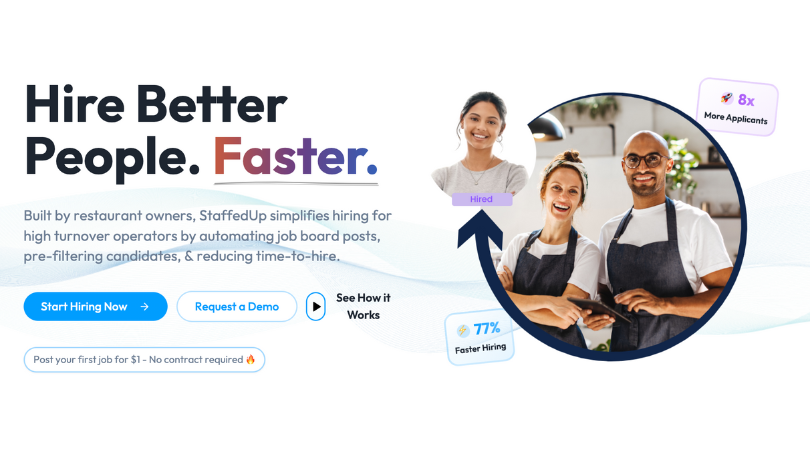Reactive or desperation hiring, which involves filling job vacancies as they arise, can have a significant impact on business productivity. When a position suddenly becomes vacant, the company is forced to divert resources and manpower to address the gap. This can disrupt workflow, decrease efficiency, and result in a decrease in overall productivity. The time and effort spent on reactive hiring can be better utilized in proactive planning and development of talent pipelines.
This type of hiring often leads to rushed decision-making. The pressure to quickly fill a position can lead to hiring someone who may not be the best fit for the role or the company culture. This can ultimately result in lower productivity and higher turnover rates as the wrong hire may require additional training or may not perform at the expected level. In contrast, proactive hiring allows employers to carefully assess candidates and select individuals who are more likely to contribute to the company’s productivity and success.
The hidden costs of reactive hiring
Reactive hiring comes with hidden costs that can negatively impact a company’s bottom line. When a position remains vacant for an extended period, the workload is often distributed among existing team members, leading to increased stress and burnout. This can result in decreased employee morale and job satisfaction, which in turn can lead to higher turnover rates.
Additionally, desperation hiring can lead to inflated recruitment costs. When a position needs to be filled urgently, companies may resort to external recruitment agencies or job boards, which often come with high fees. These costs can add up, especially if multiple positions need to be filled on short notice. In contrast, proactive hiring allows companies to build a talent pool and establish relationships with potential candidates, reducing the need for expensive external recruitment methods.
Reactive hiring can also result in lost opportunities. When a company is constantly reacting to vacancies, it may miss out on top talent who are already employed elsewhere. Proactive hiring, on the other hand, allows companies to identify and engage with potential candidates before positions become available, increasing the chances of attracting high-quality talent.
The importance of proactive hiring
Proactive hiring is crucial for companies looking to stay ahead in today’s competitive business landscape. By actively seeking out talent and building a pipeline of potential candidates, companies can reduce the time and resources spent on reactive hiring.
Proactive hiring allows companies to align their talent acquisition strategies with their long-term business goals. By identifying the skills and attributes needed for future success, companies can proactively recruit individuals who possess these qualities. This strategic approach to hiring ensures that the company has the right talent in place to drive growth and innovation.
Additionally, proactive hiring enables companies to foster a culture of continuous improvement. By constantly seeking out top talent, companies can bring in fresh perspectives and diverse skill sets, leading to increased innovation and adaptability. This proactive mindset also allows companies to be prepared for future challenges and changes in the market.
Overall, proactive hiring is essential for companies that want to be proactive, agile, and competitive in today’s fast-paced business environment.
Benefits of proactive hiring
Proactive hiring offers numerous benefits for companies. One of the key advantages is reduced time-to-hire. By building a talent pipeline and establishing relationships with potential candidates in advance, companies can significantly shorten the time it takes to fill a position. This ensures that the company can quickly respond to vacancies and minimize disruptions to workflow.
Another benefit of proactive hiring is improved quality of hires. By carefully evaluating candidates and selecting individuals who align with the company’s values, culture, and requirements, companies can improve the overall quality of their workforce. This leads to higher productivity, lower turnover rates, and increased employee satisfaction.
Proactive hiring also allows companies to be more selective in their hiring process. Instead of settling for candidates who are available at the time of a vacancy, companies can take the time to find the best fit for the role. This results in a stronger and more skilled workforce, which in turn contributes to improved business performance.
By consistently engaging with potential candidates and showcasing the company’s values and culture, companies can attract top talent and position themselves as an employer of choice. This not only helps in attracting high-quality candidates but also in retaining existing employees who are more likely to be satisfied and engaged.
Strategies for implementing proactive hiring practices
Implementing proactive hiring practices requires a strategic approach. Here are some strategies to consider:
1. Build a talent pipeline: Actively engage with potential candidates through networking events, social media platforms, and professional communities. Maintain relationships with these candidates and keep them updated about future opportunities.
2. Develop a strong employer brand: Showcase your company’s values, culture, and opportunities to attract top talent. Leverage social media platforms and employee testimonials to create a positive employer brand.
3. Invest in employee development: Nurture internal talent by providing training and development opportunities. This not only improves employee retention but also creates a pool of potential candidates for future positions.
4. Utilize data and analytics: Leverage data and analytics to identify talent trends, predict future hiring needs, and make informed decisions. This data-driven approach can help optimize the hiring process and improve the quality of hires.
By implementing these proactive hiring strategies, companies can position themselves for long-term success and overcome the limitations of reactive hiring.
Conclusion
In conclusion, reactive hiring may seem an attractive option when organizations are pressed for time or an urgent need. However, the long-term impact is costly, not just financially, but in terms of productivity, innovation, culture, and talent. To reduce the impact on the organization, proactive talent acquisition strategies should be in place. The benefits that accrue from proactive hiring are not only immediate but have lasting effects on organizations and their success.



